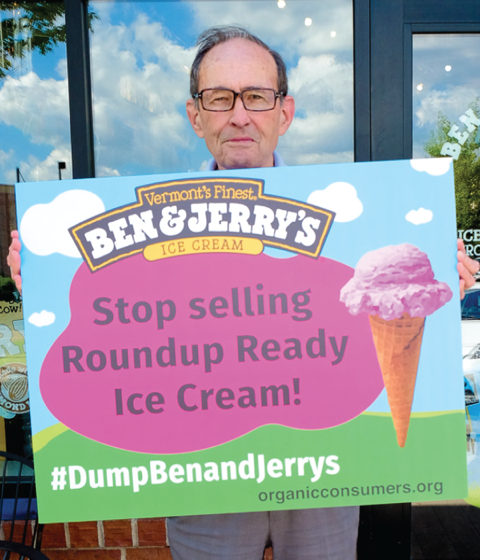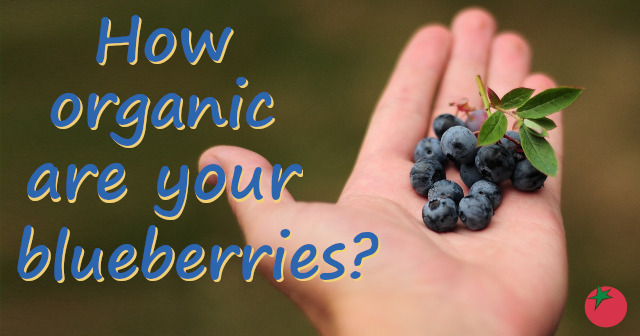Dump Dirty Dairy
It’s time for Ben and Jerry’s to go organic
Companies like Ben & Jerry’s, Starbucks and Kirtland Organic (produced by Aurora for Walmart and Costco) misrepresent their brands as being healthy, sustainable and socially responsible.
In fact, these companies support a filthy dairy industry that relies on millions of acres of GMO animal feed, unleashes tons of dangerous pesticides into soils and waterways, is cruel to animals, and produces unhealthy dairy products.
It’s time for these brands to go organic.

Take Action Today:
Featured Videos:
Cows, Carbon and Climate | Joel Salatin | TEDxCharlottesville
Organic Bytes Newsletter
Read Current Issue — April 25, 2024
Newsletter #848: How Are Your Organic Blueberries Grown?

In This Issue:
- Are Your Blueberries REAL Organic?
- Growing Organic Blueberries Right
- How To Eat 30 Plants a Week To Boost Gut Health
- Small-Scale Farmers Can Harness Regenerative Agriculture to Lead the Way to a Food-Secure Future
- Ronnie
- What’s Safe To Eat? Here Is the Pesticide Risk Level for Each Fruit and Vegetable
- Plenty of Food for Everyone
- Roundup Weedkiller in Organic?
- What Lives in Your Gut?
- Free Speech 4 Health
- Other Essential Reading and Videos for the Week
